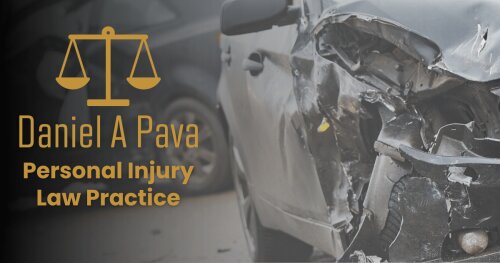Best Drugs & Medical Devices Lawyers in Springfield
Share your needs with us, get contacted by law firms.
Free. Takes 2 min.
List of the best lawyers in Springfield, United States
1. About Drugs & Medical Devices Law in Springfield, United States
In Springfield, drugs and medical devices are regulated by a mix of federal and state laws. The U.S. Food and Drug Administration (FDA) oversees most safety and efficacy requirements for drugs and medical devices nationwide. This includes premarket approval, labeling, manufacturing practices, and post market surveillance.
State authorities in Illinois implement additional rules, licensing, and enforcement within their jurisdiction. In Springfield, the Illinois Department of Public Health and the Illinois State Board of Pharmacy administer licensing, facility inspections, professional discipline, and certain device safety rules. Local regulatory actions often intersect with federal enforcement, creating a complex landscape for individuals and businesses to navigate.
For residents and organizations facing Drugs & Medical Devices matters, working with a qualified lawyer can help interpret overlapping requirements, prepare responsive filings, and coordinate with multiple agencies. See official sources for the fundamentals of how these regimes operate:
“Drugs and medical devices are regulated to ensure safety, effectiveness, and traceability from manufacture to patient use.”
Key federal authorities shape most Springfield matters, including the FDA and related federal statutes. This guide uses Springfield as a reference point for practical, jurisdiction-specific guidance within the United States framework. For authoritative details, consult the FDA and Illinois state resources cited in this guide.
Citations and sources: - U.S. Food and Drug Administration (FDA) - drugs and medical devices regulation: https://www.fda.gov
Source notes: See also federal statutes such as the Food, Drug, and Cosmetic Act, the Medical Device Amendments, and the Drug Quality and Security Act, which set the baseline for federal regulation in Springfield and across the United States.
2. Why You May Need a Lawyer
Here are concrete, Springfield-specific situations where you may need legal counsel in Drugs & Medical Devices matters.
- A Springfield clinic is under a state licensing review for improper dispensing of prescriptions, risking license suspension or probation. An attorney can guide the response, compile required records, and negotiate with the Board of Pharmacy and IDPH.
- A local hospital faces a federal FDA warning letter regarding labeling, sterility practices, or adverse event reporting for devices used in patient care. A lawyer can coordinate with compliance teams, prepare a formal response, and plan risk mitigation.
- A Springfield-based device manufacturer experiences a regulatory recall or post-market surveillance requirement with the FDA. Legal counsel can advise on communication strategies, regulatory reporting, and potential liability issues.
- A pharmacy or distributor in Springfield is investigated for controlled substances handling or alleged diversion. An attorney can protect rights during interviews, advise on DEA compliance, and help with license reinstatement processes.
- A patient harmed by a drug or device seeks compensation or informs a civil claim. An attorney can evaluate product liability exposure, pursue appropriate claims, and coordinate with regulatory findings when relevant.
- A Springfield business plans to introduce a new medical device or drug product and seeks FDA clearance or state licensing. A lawyer can guide regulatory pathways (eg, PMA, 510(k), or state registrations) and timing considerations.
3. Local Laws Overview
The Springfield area relies on a blend of federal rules and Illinois statutes to regulate drugs and medical devices. Below are 2-3 specific laws commonly cited by practitioners in this field.
- Food, Drug, and Cosmetic Act (FDCA) - Federal law governing safety and efficacy of drugs and medical devices, including labeling, manufacturing practices, and premarket oversight. The FDCA is the backbone of federal drug and device regulation in Springfield. Key sections include the drug provisions and device classifications. FDA - What we do
- Medical Device Amendments (MDA) to the FDCA - Federal amendments classifying devices and outlining premarket approval pathways, post-market surveillance, and adverse event reporting. These amendments help define risk-based classifications used by manufacturers and health facilities in Illinois and across the United States. FDA - Medical Devices
- Drug Quality and Security Act (DQSA) - Public Law 113-54, enacted in 2013, governing the serialization and traceability of prescription drugs to enhance supply chain integrity. This Act informs how pharmacies, wholesalers, and manufacturers must handle drug distribution in Illinois and Springfield. FDA - DSCSA
- Illinois Controlled Substances Act - 720 ILCS 570, governing the possession, distribution, and dispensing of controlled substances within Illinois. Administered by state licensing and enforcement authorities in Springfield, with compliance requirements for prescribers, pharmacists, and distributors. Illinois General Assembly - Statutes
- Pharmacy Practice Act - 225 ILCS 85, governing the practice of pharmacy in Illinois, including licensing, record keeping, compounding, and professional standards. Administered by the Illinois State Board of Pharmacy under IDFPR oversight. Illinois General Assembly - Statutes
Recent trends and changes: - Federal regulation continue to emphasize traceability, post-market surveillance, and device safety, with ongoing updates from the FDA. FDA
Citations and sources: - FDA overview of regulated products: https://www.fda.gov - Illinois statutes and regulatory framework: https://www.ilga.gov/legislation/ilcs.asp
4. Frequently Asked Questions
What is the FDA's FDCA and why does it matter in Springfield?
The FDCA sets safety and labeling standards for drugs and devices nationwide. It guides how products are approved, manufactured, and marketed. Understanding the FDCA helps determine regulatory exposure in Springfield matters.
How do I know if my device requires FDA clearance in Illinois?
Most devices must go through FDA clearance or approval before sale. The classification depends on risk, with higher risk devices usually needing PMA. An attorney can map your device to the correct pathway.
What is the difference between a drug and a medical device under federal law?
Drugs primarily affect body chemistry, while devices support or replace body function. The FDA classifies products accordingly and applies distinct premarket routes and post-market duties.
How much does hiring a Springfield Drugs & Medical Devices attorney cost?
Costs vary by matter and firm, but initial consultations typically range from free to a few hundred dollars. Expect hourly rates in the hundreds to low thousands, depending on complexity.
How long does a typical Illinois licensing hearing take?
Licensing hearings can span several weeks to months, depending on the case complexity and scheduling. Your attorney can push for efficient timelines and clear milestones.
Do I need a local Springfield attorney for a federal FDA matter?
Local familiarity helps with state interfaces and Board interactions, but many federal issues benefit from national experience. A lawyer with both state and federal practice is ideal.
What should I do if I receive a regulatory warning letter for a device?
Do not ignore it. Document all actions, promptly respond with a detailed corrective plan, and consult a lawyer who handles FDA compliance and regulatory matters.
Where can I find official guidance on Illinois pharmacy rules?
Use the Illinois General Assembly website and the Illinois Department of Public Health for official rules, licensing standards, and enforcement guidelines. Links are provided below.
When do I need to register a facility with IDPH or the Board of Pharmacy?
Registration requirements depend on activity (dispensing, manufacturing, or distributing) and licensure status. A lawyer can identify exact filing obligations and deadlines.
What is 510(k) clearance and when is it required?
510(k) clearance is a premarket pathway for devices that are substantially equivalent to a legally marketed device. A lawyer can assess applicability and prepare the submission plan.
How is a controlled substances issue different from a device regulatory matter?
Controlled substances cases focus on prescribing, dispensing, and diversion oversight, often with DEA involvement. Device matters center on safety, labeling, and premarket compliance with the FDA.
Can I represent myself in a Springfield regulatory hearing?
Self-representation is possible, but regulatory matters are complex and risk penalties. An experienced attorney can improve negotiation positions and clarify rights.
5. Additional Resources
Access official organizations and government resources to understand Drugs & Medical Devices regulation in Springfield and Illinois.
- - Comprehensive federal guidance on regulatory requirements, approvals, and compliance. https://www.fda.gov
- - State public health authority overseeing licensing and device safety within Illinois. https://www.dph.illinois.gov
- - Licensing, discipline, and practice standards for pharmacy in Illinois. https://www.idfpr.com
6. Next Steps
- Identify your regulatory issue and record key dates - Gather any letters, emails, licensing notices, and dates of events. Timeline: 1-3 days.
- Research Springfield-based lawyers with Drug and Device expertise - Look for attorneys with FDA regulatory, DEA, and state licensing experience. Timeline: 3-7 days.
- Schedule initial consultations with at least 2-3 attorneys - Discuss case scope, experience, and fee structures. Timeline: 1-2 weeks.
- Prepare a document bundle for the initial meeting - Include licenses, correspondences, incident reports, and any regulatory notices. Timeline: 1 week.
- Assess potential strategies and costs - Evaluate settlement, negotiation, or court options. Timeline: 1-2 weeks after consultations.
- Retain counsel and sign a formal engagement letter - Confirm scope, fees, and communication plan. Timeline: 1-2 weeks after choosing a lawyer.
- Develop a regulatory action plan with milestones - Set deadlines for filings, responses, and hearings. Timeline: ongoing with monthly reviews.
Lawzana helps you find the best lawyers and law firms in Springfield through a curated and pre-screened list of qualified legal professionals. Our platform offers rankings and detailed profiles of attorneys and law firms, allowing you to compare based on practice areas, including Drugs & Medical Devices, experience, and client feedback.
Each profile includes a description of the firm's areas of practice, client reviews, team members and partners, year of establishment, spoken languages, office locations, contact information, social media presence, and any published articles or resources. Most firms on our platform speak English and are experienced in both local and international legal matters.
Get a quote from top-rated law firms in Springfield, United States — quickly, securely, and without unnecessary hassle.
Disclaimer:
The information provided on this page is for general informational purposes only and does not constitute legal advice. While we strive to ensure the accuracy and relevance of the content, legal information may change over time, and interpretations of the law can vary. You should always consult with a qualified legal professional for advice specific to your situation.
We disclaim all liability for actions taken or not taken based on the content of this page. If you believe any information is incorrect or outdated, please contact us, and we will review and update it where appropriate.










